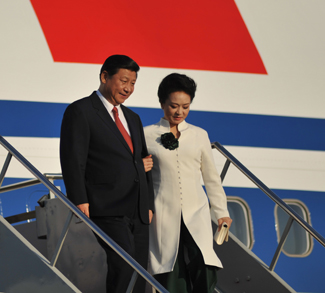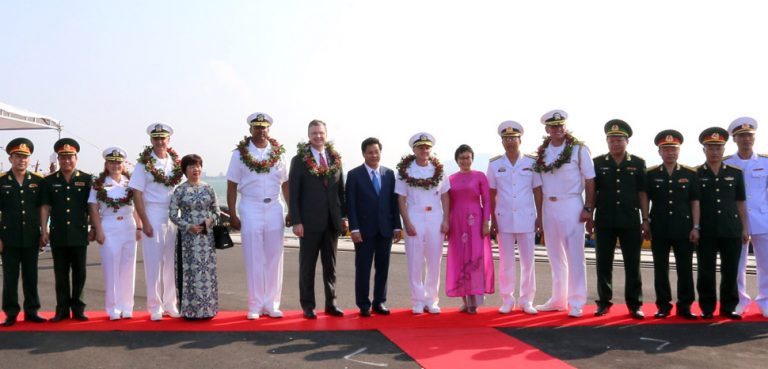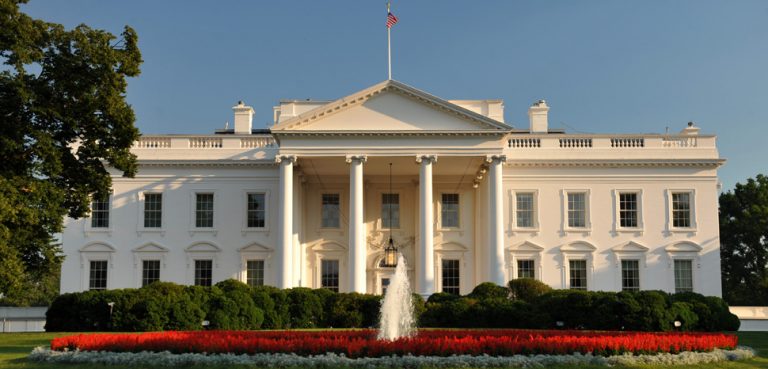This editorial was written as a rebuttal to China Enlists Academics in South China Sea Propaganda War.
Recently an article appeared in Geopolitical Monitor attacking an article I published in the South China Morning Post. It also attacked me personally. I welcome this opportunity to respond by explaining the finer points of the issues- and the normal bounds of academic debate.
As for the latter, substantive disagreement on the issues is fine; personal attacks are not. Indeed, I am surprised that Geopolitical Monitor published this diatribe that called my arguments “patently false”- without providing evidence thereof – and insulted me personally with phrases like “lost at sea without a geopolitical compass” and “promulgating agit prop”—commonly meaning ‘communist propaganda.’ I consider the latter akin to malicious McCarthy-like libel particularly at a time when the U.S. is ‘cracking’ down domestically on those academics with connections to China. Just for the record, I am a retired American analyst living in Hawaii. I have a “non-resident” affiliation with my institute, just like Mr. Borton. I have not been to China or the Institute in more than five years. I have never been asked to engage in nor have I ever engaged in “the drafting of papers and opinions that reflect Beijing’s core interests.” I undertake a balanced analysis of a situation and draw objective conclusions without any predetermined favor to any country.
It is clear that neither author is familiar with my body of work. I do not support China’s nine-dash line claim as one to sovereignty over maritime space (other than to 12nm territorial seas around high tide elevations). However, China’s claims to sovereignty over high tide elevations in the South China Sea are just as valid – or specious – as those of others, including Vietnam.
The authors allege that I have “mixed up key concepts and misled on several points” and go on to elaborate. Let me address their points one by one.
Firstly, as is the case with most public media, the SCMP editor writes the title of a piece and does not vet it with the author. That was the case here. My submitted title was “Vietnam and the U.S. Make Rather Strange Bedfellows in the South China Sea.”
Secondly, the authors assert that “artificial islands reclaimed in the South China Sea are not considered territorial waters as ruled by the 2016 arbitration tribunal.” This assertion is confused and incorrect.
The panel ruled that Mischief Reef and Subi Reef, both of which China occupies and has built up and upon, were originally low tide elevations and cannot be claimed by any country as sovereign territory and thus have no territorial sea. But other China-occupied features are high-tide elevations and are thus rocks entitled to 12 nm territorial seas. Although Hughes Reef, Gaven Reef (South) and Subi Reef are low-tide elevations, they lie within 12 nm of legal rocks and thus can be claimed as being within the territorial sea of those rocks.
When US warships sail in non-innocent passage within 12 nm of Mischief Reef, they are demonstrating that they do not consider it a legal high-tide elevation capable of generating territorial seas and are thus challenging China’s claim to sovereignty over the feature – or that of any other country.
Thirdly, regarding the port call by the US carrier strike group, the US warships had to sail through Vietnam’s territorial waters to enter and leave the port. According to Vietnamese law and policy this requires prior permission. The U.S. often challenges Vietnam’s prior permission regime with warships – a form of bullying by the way – but in this case the issue was “swept under the rug.”
Fourthly, the authors assert that Vietnam “does not seek to be a US ally.” That may be so, but the US military is sure hoping it can gain access to “places” there for its military assets that would have been emplaced in the Philippines. The authors seem to acknowledge this by pointing out that Hanoi may “[develop] necessary, appropriate defense and military relations with other countries” a move which they claim it sees as “self-defense” and thus not covered by its principle of ‘no siding with one country against another.’
Fifthly, dislike does not equal disproof. Whether or not Vietnam and the U.S. will cooperate militarily against China, only time will tell. But they would be “strange bedfellows” and not natural allies.
Sixthly, the authors think that Vietnam can and will significantly “reduce its economic dependence on the Chinese economy.” This seems more like wishful thinking than objective analysis.
Mark J Valencia is an Adjunct Visiting Senior Scholar at the National Institute for South China Sea Studies in Haikou, China.
The views expressed in this article are those of the authors alone and do not necessarily reflect those of Geopoliticalmonitor.com or any institutions with which the authors are associated.




